Background to Treason:
The Balfour Declaration
William Pierce
[Image] Arthur Balfour
http://www.counter-currents.com/2014/06/background-to-treason-the-balfour-declaration/
Editor’s Note:
The following text by William Pierce is an excerpt from a longer text, “Background to Treason: A Brief History of U.S. Policy in the Middle East, Part 1: From the Exodus to the Balfour Declaration.” I simply removed everything before the discussion of the Balfour Declaration. Pay no mind to Pierce’s passing reference to the now thoroughly discredited Khazar account of the originals of Ashkenazi Jewry.
The middle of the 19th century saw a growing restlessness in the Jews of eastern and central Europe. The Industrial Revolution and all the changes in trade, transportation, and life-styles that came with it had broken up old patterns and created new opportunities, and the Jews began reorganizing themselves to take advantage of these.
They created two new movements: one, preaching internationalism and class warfare was directed primarily toward the Gentiles. It was Communism, and its principal founder was the Jew Karl Marx.
The other, directed toward the Jews only, preached Jewish nationalism and solidarity It was Zionism, and one of its first proponents was Moses Hess, a close associate and friend of Marx. Hess’s book Rome and Jerusalem, published in 1862, was one of the seminal documents of the Zionist movement.
[Image] Moses Hess
The Zionists wanted to establish an exclusively Jewish national state, from which they could direct the activities of the Jews spread throughout the Gentile world — and eventually direct the Gentile world itself Toward this end groups of Jews from Europe began buying up land in Palestine and establishing Jewish colonies there in the 1870s and 1880s.
This colonization activity inevitably provoked the fear and resentment of the Palestinians, and in response the Turkish administrators took measures to limit the activities of the Zionists in Palestine. The Jews countered by seeking political allies among the Gentiles in England and Europe and looking for ways to bring pressure against the Turks.
To coordinate their moves they organized a Zionist Congress, which held its first meeting in August 1897, in Basle, Switzerland The leading figure at the first Zionist Congress was Theodor Herzl (1860-1904), whose book Der Judenstaat (The Jewish State), published in Vienna the year before, contained a cogent summary of the Zionist position.
[Image] Theodor Herzl
According to Herzl:
“Every nation in whose midst Jews live is, either covertly or openly, anti-Semitic…. Anti-Semitism increases day by day and hour by hour among the nations; indeed, it is bound to increase, because the causes of its growth continue to exist and cannot be removed.”
He saw this anti-Semitism, which arose naturally wherever the Jewish presence made itself felt, as a blessing, because it kept the Jews conscious of their unique status, prevented their assimilation, and united them in their efforts to overcome their Gentile hosts:
“… [T]hus united, we suddenly discover our strength…. When we sink, we become a revolutionary proletariat, the subordinate officers of the revolutionary party; when we rise, there rises also our terrible power of the purse.”
Even before the Zionist Congress met, Herzl had been attempting to persuade the Turks to give the Jews free rein in Palestine. First he tried blackmail, hinting that he and his fellow Jews, by using their influence, could either silence or intensify the agitation against Turkey then being carried on in various European capitals by Armenian expatriates, who had their own grievances.
When the blackmail didn’t work, Herzl’s thoughts turned to war. He told his fellow Zionists at Basle that they might be able to achieve control of Palestine through a European war, if they played their cards right:
“It may be that Turkey will refuse or will be unable to understand us. This will not discourage us. We will seek other means to accomplish our end. The Orient question is now a question of the day. Sooner or later it will bring about a conflict among the nations. The great European war must come. With my watch in hand do I await this terrible moment. After the great European war is ended the peace conference will assemble. We must be ready for that time.” [1]
The other Zionist leaders fell in with Herzl’s war plans — which, it is well to note, were proclaimed to world Jewry 17 years before the actual outbreak of the war. As it turned out, the Jews were able to use the war just as they had hoped: from it they finagled a promise by the government of Great Britain to secure Palestine for them.
This promise, the so-called “Balfour Declaration,” has an especially interesting history, for it not only throws light on the crucial period during which the Jews first secured the control over the foreign policy of the United States which they still wield — that is, the period during which the American people lost their sovereignty, unknowingly yielding to an alien minority in their midst the power to choose which nations would be America’s friends and which her foes; to decide when there would be peace and when war, and how each war would be waged, whether to win or lose or draw — but it also brilliantly illuminates the general modus operandi which the Jews, spread out as they are among many nations, have long used in playing off one nation against another in order to attain their own ends.
It would hardly be possible to relate here every Zionist move in the 20 years between Herzl’s speech to the first Zionist Congress and the British government’s offer of Palestine to the Jews, even if all the moves were known. It must suffice, in laying the background, to mention a few key developments which made the Balfour Declaration possible.
First, the years immediately following the first Zionist Congress saw an enormous influx of Jews into the United States. Although U.S. immigration statistics prior to 1899 do not reveal the race or religion of immigrants, we know that in 1897 the total Jewish population of the United States was approximately 800,000 — and nearly half of those had arrived in the preceding decade. By 1914 the number had more than tripled, to some 2 1/2 million. The majority of the new immigrants came from Russia, where the Zionist movement was especially strong.
[Image] The Jewish Immigrant publication
This tidal wave of Jewish immigrants made itself felt very soon in the economic and political life of the United States. Jewish ambition and energy, not to mention a predilection for those endeavors yielding quick gain, resulted in a phenomenally rapid growth in the financial power wielded by Jews in the country, and this power was put to immediate use in acquiring a political influence disproportionate to their numbers. Already in 1896, the year before Herzl’s speech, the New York Times fell into Jewish hands, with its purchase by Adolph Ochs. Thirteen years before that Joseph Pulitzer, the Jewish father of yellow journalism, had purchased the New York World. And in the years between 1897 and 1917 the Jews continued their acquisitions, building a very strong bridgehead in the news media for furthering their long-range goals.
[Image] Adolph Ochs
Just as the Palestinians had reacted to the Jewish colonization of Palestine, so did White Americans react to the Jewish colonization of America. The politicians responded with their typical timidity and ambiguity to White demands for a halt to the flood of Jews. In 1897 the U.S. Congress enacted a law requiring proof of literacy before immigrants could be admitted to the United States. The law would have kept out most of the Jews from Russia and other parts of eastern Europe then pouring into the country, but it never had a chance to accomplish its aim, because President Cleveland vetoed it.
As the growing Jewish presence became more obnoxious to Americans, the pressure on the reluctant politicians to do something grew. Jewish political influence had also grown apace, however, and the Jews were able to counter every effort at legislation intended to keep them out of the country. President Taft vetoed another immigrant-literacy law early in 1913, just before leaving office, and President Wilson did the same thing in 1914.
[Image] Jewish immigrants leaving Ellis Island, 1915
The second major development leading to the Zionists’ triumph in 1917 was the election of Woodrow Wilson to the Presidency in 1912, and then his reelection in 1916. Wilson was entirely their man. From the time he took office in 1913 until he left it in 1921, he made hardly a decision without consulting his counselor and confidante, Louis Dembitz Brandeis.
[Image] Louis Dembitz Brandeis
Wilson was an ineffectual man, who, after failing to make a career for himself as a lawyer, retreated to the academy, teaching political science first at Bryn Mawr, then at Wesleyan, and finally at Princeton. He was also less than brilliant as an academician, but he possessed a rhetorical flair which he used to promote a hodgepodge of confused, liberal notions, thereby gaining for himself the backing of the liberal element among the Princeton faculty, who eventually boosted him into Princeton presidency. He was never very strong, and he suffered several major breakdowns, even in the relatively sheltered life of a professor.
Louis Brandeis (1856-1941), an enormously wealthy and successful Boston lawyer, was the son of Jewish immigrants from Bohemia. He was also the leader of the Zionist movement in the United States. In 1912 he headed the group which invited Nahum Sokolow, the Zionist leader from Russia, to speak in the United States. In 1914 he organized and became the chairman of the Provisional Executive Committee for General Zionist Affairs. But his Zionist leadership was something kept between himself and his fellow Jewish nationalists.
To the American public and the Democratic Party’s politicians he was a very clever advocate of “democracy,” who was involved in a number of celebrated legal cases on behalf of labor unions. His left-wing admirers in the press nicknamed him “the people’s lawyer.”
[Image] Woodrow Wilson
Wilson had also achieved something of a reputation as a champion of equality and democracy when, as president of Princeton University, he became embroiled in a fight to abolish Princeton’s exclusive student eating clubs, which he regarded as elitist and undemocratic. The ruckus caused by Wilson’s opposition to the eating clubs brought him to the attention of New Jersey’s Democratic Party political bosses, and they chose him as their gubernatorial candidate in 1910. They also introduced him to Brandeis, who took the weak, vain, professorial Wilson firmly in hand and guided him in all political matters (and many private matters as well) thereafter.
When Wilson became President he immediately offered Brandeis a position in his Cabinet, but the clever Jew chose instead to remain in the background, where his influence over Wilson would not become compromised by public scrutiny. Indeed, Brandeis was very wise in this decision, because when he did accept an appointment to the Supreme Court from Wilson in 1916, there was a great deal of public opposition.
Nevertheless, Brandeis became the first Jew to serve on the U.S. Supreme Court, and he did so without giving up his informal post as counsel to the President and general political “fixer,” as recent research has revealed. [2]
The third development which was essential to Zionist aims was the war itself and the impasse it had reached in the autumn of 1916. We dare not become involved in a history of the First World War here, but the main points relevant to our following of the Zionist trail are these: The principal antagonists were Britain and Germany One of the many countries fighting on the British side was Imperial Russia. One of the several countries on the German side was Turkey. In the west the antagonists were stalemated, facing each other in opposing trenches which stretched across the continent from north to south and unable to gain very much ground on either side without enormous losses.
The German Verdun campaign of 1916, the longest and bloodiest “battle” in the history of warfare, had failed to achieve any significant advantage for the Germans, and it was to cost them and their French opponents half a million casualties each before it finally petered out. The Franco-British Somme offensive, which followed the ebb of the German offensive at Verdun — and which cost the British 19,000 dead on the first day — proved equally inconclusive.
[Image] The battle of the Somme took place between 1 July and 18 November, 1916, The British Expeditionary Force and the French Army conducted a joint offensive against the Germans, who had held much of the territory since 1914. When the battle had ended, the allies had advanced almost 10 km but were still 5 km from their major objective. More than one million casualties were suffered.
On the eastern front the Russian Brusilov offensive cost the Czar a million men and left him so weakened that the Germans thereafter held the advantage.
At sea German submarines were claiming an increasing toll on British shipping, and Britain was feeling the strain. The only hope British leaders could see for ending the stalemate was to bring America into the war. Otherwise, to continue the war would bankrupt them; they would be obliged to accept a compromise peace, without achieving their aim of crushing Germany as an industrial-commercial rival. The public sentiment in America was strongly against intervention in the war, and Wilson won reelection in November by campaigning as a pacifist. His campaign slogan was, “He kept us out of war.”
Thus was the stage set. Now enter the Zionists.
The Jews had three principal aims: First, to break the Turkish hold on Palestine. Second, to obtain from whichever power replaced Turkey in Palestine the concessions they had been unable to obtain from the Turks. Third, to destroy Russia, an object of special hatred to them.
Until the fall of 1916 it was the third of these aims which manifested itself most noticeably in the Jews’ policy. It is well to remember that it had been Rus warriors, under Sviatoslav the Great, who in 965 had utterly smashed the Khazar Empire, and the Ashkenazic Jews, who made up virtually all of the Zionist leadership, had long memories. Even today Jews celebrate annually their triumphs over enemies thousands of years ago.
Furthermore, a parallel Jewish movement, Bolshevism, had made great strides in Russia, and Jews throughout the world, of whatever persuasion, wanted to see the Russians weakened to the point that the Bolsheviks could seize the nation. It was with this purpose in mind that Jacob Schiff, America’s richest Jew, financed Trotsky and his fellow Jewish Bolsheviks to the tune of $25 million. Later, after the downfall of Russia, Schiff opened his coffers to the Zionists.
[Image] Jacob Henry Schiff (born Jakob Heinrich Schiff; January 10, 1847 – September 25, 1920)
[Image] Leon Trotsky born Lev Davidovich Bronshtein (7 November 1879 – 21 August 1940) was a Russian Marxist revolutionary and theorist, Soviet politician, and the founder and first leader of the Red Army.
Toward the end of 1916, however, it was clear that Russia was in terminal condition. Although she still had vast armies in the field and even vaster reserves of manpower at home, from a strategic viewpoint Russia was whipped, and the Germans were already beginning to withdraw troops from the eastern front in order to bolster their strength in the west.
A good share of the credit for the Russian collapse belonged to the Bolsheviks, who were working furiously to undermine morale in the trenches and in the factories. They spread pacifist and defeatist leaflets among the troops and carried on in Russia’s cities much as they did more than 50 years later in America’s cities during the Vietnam war.
Until this point then, it had behooved the Jews to back Germany, and they did. Ultimately, however, their plan called for Germany — or, at least, Germany’s ally Turkey — to lose. So it was that in October 1916 the Jews made their offer to the British government: We will bring America into the war, if you will take Palestine away from the Turks and give it to us.
The story of this offer, its acceptance by the British government, and its aftermath has been told in several places and hinted at in many. Not in any of the “approved” history texts dealing with the First World War which are used today in American colleges and universities, of course, or in any “popular” treatments of the war to be found in newsstand paperbacks, but the interested reader can nevertheless find a number of unimpeachable, firsthand accounts, if he is willing to dig a bit in a large library. For example, Malcolm Thomson, the biographer of David Lloyd George, Britain’s wartime prime minister, writes on pages 273-74 of David Lloyd George, the Official Biography (London, 1949):
[Image] David Lloyd George, 1st Earl Lloyd-George of Dwyfor, OM PC (17 January 1863 – 26 March 1945) was a British Liberal politician and statesman.
. . . In the autumn of 1916, when the question of strengthening sympathy with the Allied cause was growing acute, an Armenian Jew, James A. Malcolm, who was giving expert help and advice to the Government about Middle Eastern matters, approached [Foreign Office Undersecretary Sir Mark] Sykes and urged that the Allies should capture the sympathies of American Jewry — at that time tending to favour Germany — by a declaration of support for the Zionist cause. Sykes saw the possibilities of the suggestion, and laid it before Lord Milner, who took it up with the Cabinet.
. . . Secret assurances were given to the Zionist leaders through Sykes that the British government would support their cause if the consent of their Allies could be obtained. A message to this effect was sent to Justice Brandeis, the American Zionist, who was a close friend of President Wilson, and the help of leading Zionists in all the Allied countries was mobilized.
Samuel Landman, secretary to Zionist leaders Chaim Weizmann and Nahum Sokolow in 1916, and later general secretary of the World Zionist Organization, narrates the events from firsthand knowledge in his booklet Great Britain, the Jews, and Palestine (London, 1936). [3] On pages 4-5 he writes:
During the critical days of 1916 and of the impending defection of Russia, Jewry, as a whole, was against the Czarist regime and had hopes that Germany, if victorious, would in certain circumstances give them Palestine. Several attempts to bring America into the War on the side of the Allies by influencing influential Jewish opinion were made and had failed. Mr. James A. Malcolm, who was already aware of German pre-war efforts to secure a foothold in Palestine through the Zionist Jews and of the abortive Anglo-French demarches at Washington and New York; and knew that Mr. Woodrow Wilson, for good and sufficient reasons, always attached the greatest possible importance to the advice of a very prominent Zionist (Mr. Justice Brandeis, of the U.S. Supreme Court); and was in close touch with Mr. Greenberg, Editor of the Jewish Chronicle (London); and knew that several important Zionist Jewish leaders had already gravitated to London from the Continent on the qui vive awaiting events; and appreciated and realised the depth and strength of Jewish national aspirations; spontaneously took the initiative, to convince first of all Sir Mark Sykes, Under Secretary to the War Cabinet, and afterwards Monsieur Georges Picot, of the French Embassy in London, and Monsieur Gout of the Quai d’Orsay (Eastern Section), that the best and perhaps the only way (which proved so to be) to induce the American President to come into the War was to secure the co-operation of Zionist Jews, by promising them Palestine, and thus enlist and mobilise the hitherto unsuspectedly powerful forces of Zionist Jews in America and elsewhere in favour of the Allies on a quid pro quo contract basis. Thus, as will be seen, the Zionists, having carried out their part, and greatly helped to bring America in, the Balfour Declaration of 1917 was but the public confirmation of the necessarily secret “gentleman’s” agreement of 1916 made with the previous knowledge, acquiescence and/or approval of the Arabs and of the British, American, French and other Allied Governments, and not merely a voluntary altruistic and romantic gesture on the part of Great Britain as certain people either through pardonable ignorance assume or unpardonable ill-will [sic] would represent or rather misrepresent.
An interesting account of the negotiations carried on in London and Paris, and subsequent developments, has already appeared in the Jewish press and need not be repeated here in detail, except to recall that immediately after the “gentleman’s” agreement between Sir Mark Sykes, authorised by the War Cabinet, and the Zionist leaders, cable facilities through the War Office, the Foreign Office and British Embassies, Legations, etc., were given to the latter to communicate the glad tidings to their friends and organisations in America and elsewhere, and the change in official and public opinion as reflected in the American press in favour of joining the Allies in the War, was as gratifying as it was surprisingly rapid.
[Image] Samuel Landman’s booklet (98 pages) Great Britain, the Jews, and Palestine (London, 1936).
Landman tells the same story in other places: for example, in a lengthy letter titled “The Origin of the Balfour Declaration” published in the Jewish Chronicle (London, February 7, 1936; page 33).
A much more detailed account of the negotiations between the Jews and the British government in October 1916 is in Two Studies in Virtue (London, 1953), a biography of Sir Mark Sykes by his son, Christopher Sykes, who drew extensively on his father’s diaries and letters of the period. A few paragraphs excerpted here from pages 180-188 of that book suggest the essentials:
[Image] Colonel Sir Mark Sykes, 6th Baronet (born Tatton Benvenuto Mark Sykes; 16 March 1879 – 16 February 1919) was an English traveller, Conservative Party politician and diplomatic adviser, particularly about matters respecting the Middle East at the time of the First World War.
. . . One day in October of 1916 a certain Mr. James Malcolm came to visit Mark Sykes.. . . Sykes . . . [said] that he could see no end to the war. In France there was a military deadlock. At sea the power of the [German] submarine was growing; on land that of the Russian armies failing. . . . A decisive victory, or indeed a victory of any kind, seemed impossible without American participation on an enormous scale, and of that he saw little likelihood. . . . At this Mr. Malcolm took occasion to harangue his friend on the principles which should govern British foreign policy regarding the Jewish world. . . . He proceeded to tell him about Zionism. . . .
Mr. Malcolm . . . then told Sykes of a very curious and powerful influence which Zionists could exert. One of President Wilson’s closest advisers and friends was Justice Louis D. Brandeis, a Jew. . . . It was believed . . . that Wilson was attached to Brandeis by ties of peculiar hardness. . . . It followed that . . . a Zionist policy was in truth the way to capture American sympathy [for the Allies]. . . .
. . . [Malcolm then said:]
“The question is, do you want the help of the Jews of the United States? The only way you can get that help is by offering Palestine to the Zionists.”
. . . [After the British had agreed to the Zionist terms, the leader of the Zionist delegation, Nahum] Sokolow made a simple request, namely that the Zionist Committee should have facilities for communications abroad. He pointed out that since they were an international body this was especially needful to them, and he suggested that they should be granted governmental privileges, since they could thus attain their object while subjecting themselves to the needs of secrecy and censorship.
The next morning . . . [Sokolow] got what he asked for: it was agreed that the War Office and the Foreign Office would send Zionist letters and telegrams by way of [British] Embassies. . . . The news was given out to Jewish communities all over the world that in return for certain services the British Government . . . would satisfy the Jewish longing for Palestine . . .
A more general account is given by Professor H. W. V. Temperley in his six-volume work, A History of the Peace Conference of Paris (London, 1924). Of the Balfour Declaration he writes (vol. vi, pp. 173-174):
“That it is in purpose a definite contract between the British Government and Jewry represented by the Zionists is beyond question. In spirit it is a pledge that in return for services to be rendered by Jewry the British Government would ‘use their best endeavours’ to assure the execution of a certain definite policy in Palestine.”
As Samuel Landman notes above, once the deal had been struck and the word sent out to American Jews;
“the change in official and public opinion as reflected in the American press in favor of joining the Allies in the war was surprisingly rapid.”
President Wilson, without blushing or skipping a beat, changed his tune from;
“I kept us out of war” to “We must destroy German militarism in order to make the world safe for democracy.”
[Image] Thomas Woodrow Wilson (December 28, 1856 – February 3, 1924) was the 28th President of the United States from 1913 to 1921.
A detailed examination of the chicanery used by the “American” press and President to coax a reluctant nation into sending its sons off to die in Flanders’ fields and a thousand other foreign places, in order that, unknown to them, the Jews could satisfy their side of their deal with the British government, would take us far beyond the scope of this article. The various pretexts used for abandoning neutrality — such as Germany’s submarine blockade of Britain and the so-called “Zimmermann telegram” — are treated exhaustively in the “approved” textbooks on the war (although they are treated with utmost seriousness rather than as pretexts).
In brief, it was a matter of Wilson’s talking peace, even sending his personal factotum, “Colonel” Edward Mandell House, on supposed peace missions to the various belligerents, while actually seizing every opportunity to fan the flames of war. The scheme was to present an appearance to the public of his being forced, much against his will, to go to war in order to defend America’s honor. Because the war provided plenty of real opportunities for international “incidents” to occur, especially when Wilson took pains to see that Americans would be in harm’s way as often as possible, it was not overly difficult to generate the desired impression in the public mind.
For example, when a German submarine sank the British ship Laconia [4] on February 25, 1917, with the loss of three Americans who were aboard, Wilson and the press put on a great show of moral outrage at this act of German “barbarism,” treating it as an intolerable affront to American sovereignty.
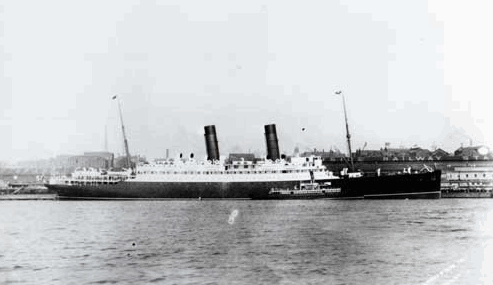 [Image] RMS Laconia was a Cunard ocean liner built by Swan Hunter & Wigham Richardson, launched on 27 July 1911.
[Image] RMS Laconia was a Cunard ocean liner built by Swan Hunter & Wigham Richardson, launched on 27 July 1911.
It was a matter of exaggerating incidents which could have been ignored — or avoided altogether — if Wilson really had wanted to preserve American neutrality. The German submarine blockade of Britain was milked for all it was worth to generate anti-German sentiment among the American people, while the far more ruthless British blockade of Germany was quietly ignored. Wilson connived to assure that the former would yield pretexts for intervention, while he took measures to prevent American ships and citizens from running afoul of the latter. [5]
In any event, it is clear that Mr. Ochs’s investment in the New York Times yielded a handsome dividend to world Jewry, as did Mr. Brandeis’ years of patient counsel to the fawningly grateful and ever more dependent Woodrow Wilson.
The British formalized their intention to satisfy their side of the deal with the Jews by issuing the Balfour Declaration, which was in the form of a letter, dated November 2, 1917, from British Foreign Secretary Arthur Balfour to “Lord” Lionel Rothschild, who was recognized as the leader of the Jewish community in Britain. The brief document merely stated a resolution which had been approved by the British Cabinet:
“His Majesty’s Government view with favour the establishment in Palestine of a national home for the Jewish people, and will use their best endeavours to facilitate the achievement of this object, it being clearly understood that nothing shall be done which may prejudice the civil and religious rights of existing non-Jewish communities in Palestine, or the rights and political status enjoyed by Jews in any other country.”
[Image] Lionel Nathan de Rothschild, OBE (25 January 1882 – 28 January 1942) was an English banker and Conservative politician.
The last provision, added at Jewish insistence, reveals the Zionists’ intention that Jews everywhere should be uniquely favored by being permitted to enjoy the citizenship, with full rights and privileges, of both the Gentile country in which they happen to reside at the moment and of their “national home” in Israel.
The reservation about not prejudicing the “civil and religious rights of existing non-Jewish communities in Palestine” was, under subsequent Jewish pressure, eventually ignored.
The Balfour Declaration provides an especially interesting example of the hypocritical cant which has characterized the statesmanship of both of the great English-speaking powers during the 20th century. Pious concern for the rights of the non-Jews in Palestine is expressed in a document which, in effect, is a promise by the British government to secure for the Jews land which belonged neither to it nor to the Jews. How did Mr. Balfour imagine that his government could accomplish that dubious feat without prejudicing the rights of the current owners of the land, who were in no mood to give it up willingly?
One is reminded of the British government’s claim in September 1939 that it was declaring war on Germany in order to protect the freedom of its ally Poland, which had been invaded by Germany — a claim which conveniently overlooked the fact that the Soviet Union had also invaded Poland. In 1945 the same British government, its earlier expression of concern for Polish freedom buried under a bushel of new cant about democracy and peace, obligingly agreed to its ally becoming an unwilling vassal of the Soviet Union.
Nothing, however, can quite match the unabashed brazenness of the hypocrisy Woodrow Wilson displayed in engineering the entry of the United States into the First World War — unless it was that displayed a generation later by Franklin Roosevelt, when he too talked peace and plotted war, at the behest of the same people Wilson had served.
Wilson’s campaign propaganda for the 1916 election emphasized his stance of non-intervention in the war then raging in Europe. Most of the press and the public were also against intervention. Then, after Wilson’s reelection — and the British-Zionist deal, concluded just a few days before the election — the press began a “surprisingly rapid” shift toward an interventionist stance. Wilson followed, calling for a declaration of war against Germany just five months after his reelection.
[Image] A New York Journal headline marks the entrance of the United States into World War I, April 6, 1917.
Even before that, however, he and Brandeis had been planning war, and it was their secret assurances that the United States would be brought into the war that led British leaders to reject Germany’s peace offer of December 12, 1916. If that offer had been accepted, the lives of some three million White soldiers — including 115,000 Americans — Which were consumed in 1917 and 1918 would have been spared. Furthermore, the Second World War, which grew out of the unjust conditions imposed on Germany after the Allied victory, would have been avoided. And if Russia could have had peace in December 1916, she probably would have had time to stamp out the Bolshevik virus being spread among her soldiers and workers by the Jews, and Communism would have suffered a setback from which it might never have recovered. All of the grim and bloody consequences of Wilson’s switch in foreign policy stem from the Zionist influence in the U.S. news media and politics, which had been built up over the preceding two decades.
[Image] WILSON’S campaign propaganda for the 1916 election emphasized his stance of non-intervention in the war then raging in Europe. Most of the press and the public were also against intervention. Then, after Wilson’s reelection — and the British-Zionist deal, concluded just a few days before the election — the press began a “surprisingly rapid” shift toward an interventionist stance. Wilson followed, calling for a declaration of war against Germany just five months after his reelection.
Even before that, however, he and Brandeis had been planning war, and it was their secret assurances that the United States would be brought into the war that led British leaders to reject Germany’s peace offer of December 12, 1916. If that offer had been accepted, the lives of some three million White soldiers — including 115,000 Americans — which were consumed in 1917 and 1918 would have been spared.
Furthermore, the Second World War, which grew out of the unjust conditions imposed on Germany after the Allied victory, would have been avoided. And if Russia could have had peace in December 1916, she probably would have had time to stamp out the Bolshevik virus being spread among her soldiers and workers by the Jews, and Communism would have suffered a setback from which it might never have recovered.
All of the grim and bloody consequences of Wilson’s switch in foreign policy stem from the Zionist influence in the U.S. news media and politics, which had been built up over the preceding two decades.
Upon reflection, may we not conclude that lying cant is what should be expected of any government which has degenerated to the point that it consists mainly of lawyers? And is not that the kind of government which must inevitably devolve under a system which gives the franchise to the credulous and the gullible?
It is the historians and the teachers, however, who most deserve our scorn. Everyone expects lawyers to lie; word trickery is their stock-in-trade. No lawyer committed to the truth could hope to earn a living. But historical scholars are supposed to be different. They are supposed to be indifferent to popular myths, always seeking the reality which lies beneath the facile explanations of governments and politicians.
The explanation for the reluctance of modern historians to write about the Zionist role in the First World War is this: In the immediate postwar years, the Zionist responsibility for America’s entry into the war was a valid topic for historical investigation and discussion, with even the Zionists freely admitting their actions. After all, America and Britain had won the war, and Germany was down and out. How could the truth hurt anyone?
Then in 1933 Germany, under Adolf Hitler, began getting back on its feet. Suddenly any discussion of the truth about the Zionist role in the last war became “anti-Semitic.”
One man who was privy to every detail of that role was David Lloyd George. In 1938 the former British war secretary and prime minister wrote a two-volume book, The Truth about the Peace Treaties. In that book he described the way in which Jews all over the world — in Germany and Russia as well as in America — immediately switched from a pro-German to an anti-German stance after the deal between his government and the Zionists was made. He pointed out the fatal consequences this switch had for the German war effort. And on page 1140 he noted:
“The Germans themselves know that to be the case, and the Jews in Germany are suffering today for the fidelity with which their brethren in Russia and in America discharged their obligations under the Zionist pledge to the Allies.”
Since the Second World War, any criticism of the Jews has been taboo, and even the historical scholars have feared to tread on ground where their discoveries might reveal the Jews in a a bad light. The consequences of this cowardice have been very costly indeed.
From National Vanguard magazine (December, 1982), transcribed by Michael Olanich
http://www.counter-currents.com/2014/06/background-to-treason-the-balfour-declaration/
Notes
[1] American Jewish News (New York), March 7, 1919. A photographic reproduction of the pertinent sections from that publication and other Zionist documents may be found in Issue No. 48 of National Vanguard.
The reader should note that Herzl uses the expression “the nations,” both in this speech and in the excerpt quoted above from his book, as a code phrase: He gives it the same meaning it has in the Old Testament, as in, “I have this day set thee over the nations… to root out and to pull down and to destroy ” (Jeremiah 1:10) That is, “the nations” means “the goyim.”
Harper’s Bible Dictionary (Madeleine S. Miller and J. Lane Miller, New York, 1959), has the entry: “nations, a term used by Hebrew writers for non-Israelites, outsiders, Gentiles, heathen.”
[2] The Brandeis-Frankfurter Connection: The Secret Political Activities of Two Supreme Court Justices, by Bruce Murphy (Oxford University Press, 1982). Murphy, a political science professor at Pennsylvania State University, discovered an extensive file of correspondence between Brandeis and a Jewish law professor at Harvard University, Felix Frankfurter (1882-1965). From the time of his appointment to the Supreme Court in 1916 until his retirement in 1939, Brandeis paid Frankfurter to serve as his messenger and errand boy, so that Brandeis could secretly maintain all of his political contacts behind the cloak of judicial impartiality.
[3] http://libcudl.colorado.edu/wwi/pdf/i73443578.pdf
[4] RMS Laconia was a Cunard ocean liner built by Swan Hunter & Wigham Richardson, launched on 27 July 1911, delivered to the Cunard Line on 12 December 1911, and began service on 20 January 1912. She was the first Cunard ship of that name.
On the outbreak of World War I Laconia was converted into an armed merchant cruiser in 1914 and based at Simon’s Town, South Africa in the South Atlantic, from which she patrolled the South Atlantic and Indian Ocean until April 1915. She was then used as a headquarters ship for the operations to capture Tanga and the colony of German East Africa. She continued to serve on the East Africa station, before returning to Britain with a convoy in June 1916. She was handed back to Cunard in July 1916 and on 9 September resumed service.
On 25 February 1917 she was torpedoed by SM U-50 6 nautical miles (11 km) northwest by west of Fastnet while returning from the USA to England with 75 passengers (34 first class and 41 second class) and a crew of 217 commanded by Captain Irvine. The first torpedo struck the liner on the starboard side just abaft the engine room, but did not sink her. 20 minutes later a second torpedo exploded in the engine room, again on the starboard side, and the vessel sank at 10:20 pm. 12 people were killed, six crew and six passengers, including two American citizens, Mrs. Mary Hoy and her daughter, Miss Elizabeth Hoy, who were originally from Chicago.
Chicago Tribune reporter Floyd Gibbons was aboard Laconia when she was torpedoed and gained fame from his dispatches about the attack.
[5] The chicanery involved in the way Wilson and the press dealt with the blockades the belligerents imposed on one another is revealed especially well in Colin Simpson’s excellent and thoroughly documented book The Lusitania (Boston, 1972). That book in turn refers the interested reader to a number of other valuable sources.
Source: http://nationalvanguard.org/2014/06/background-to-treason-part-1/
PDF of this blog post. Click to view or download (1.7 MB). >> Background to Treason – The Balfour Declaration Ver 2
Version History
Version 3: Aug 25, 2020 — Re-uploaded images and PDF for katana17.com/wp/ version.
Version 2: Dec 16, 2017 — Improved formatting.
Version 1: Published Jun 27, 2014

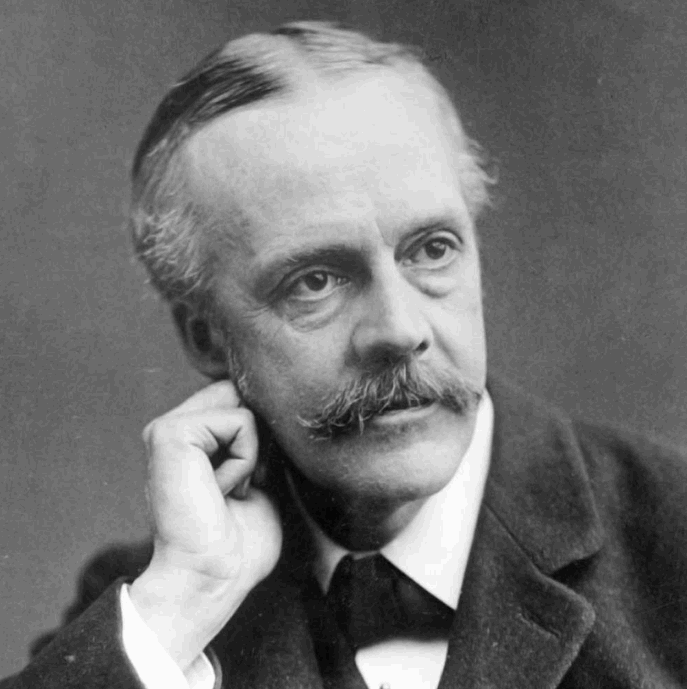

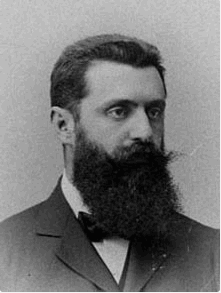
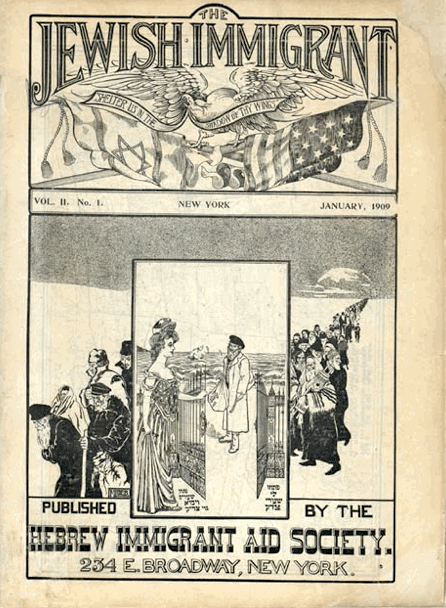
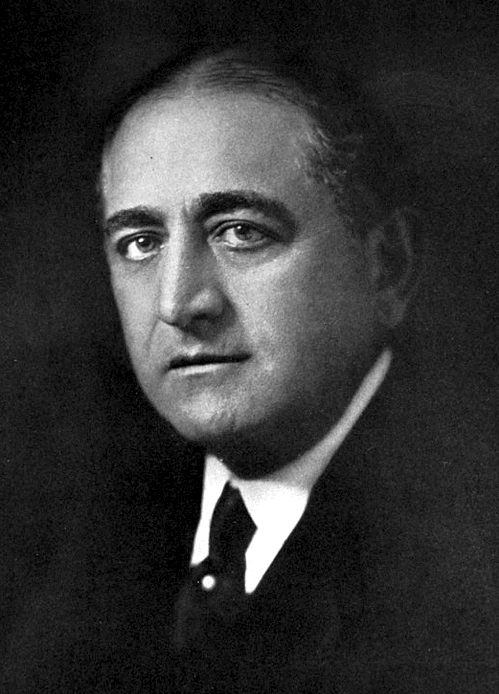
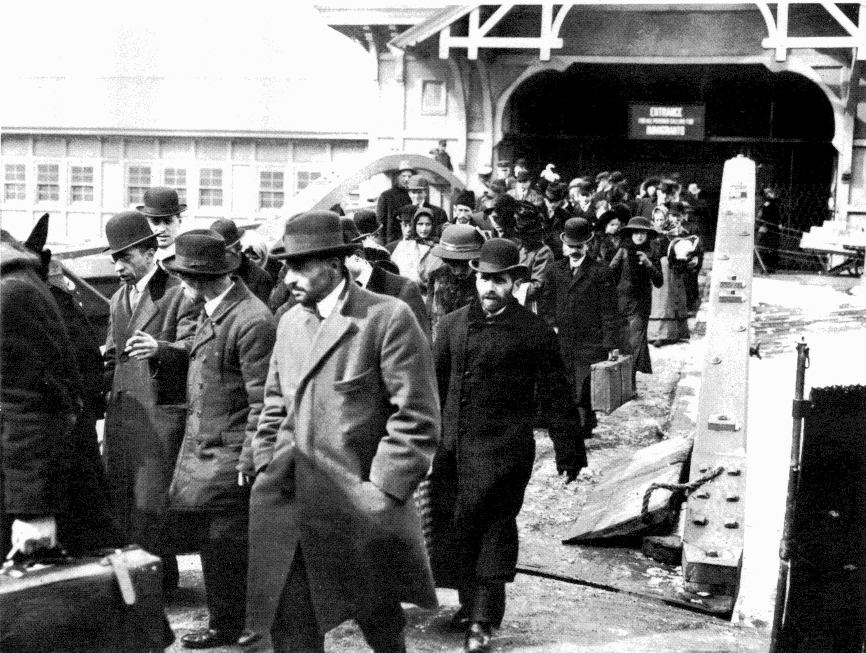
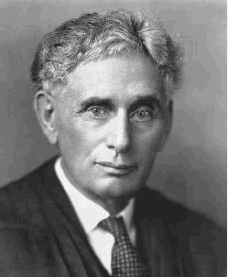
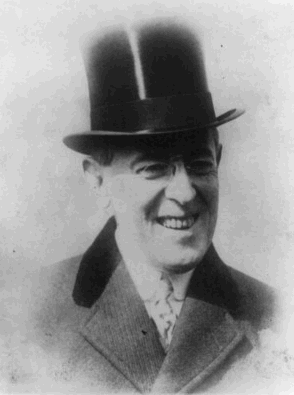
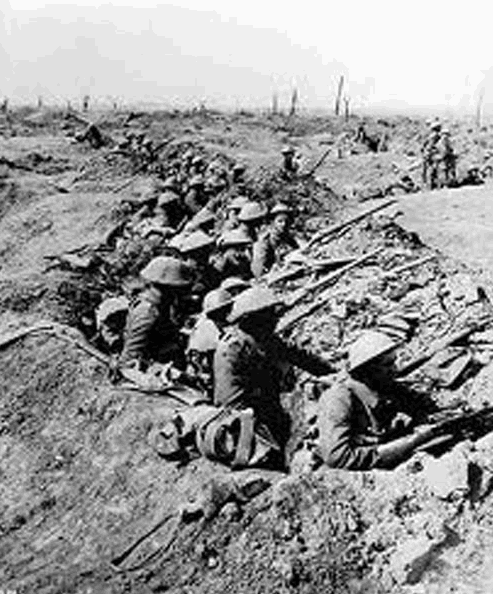
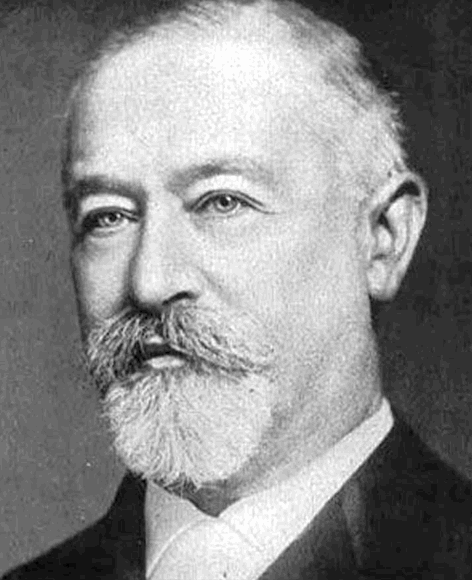
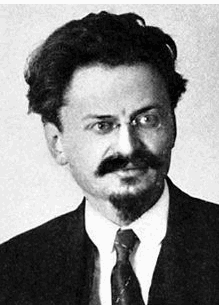
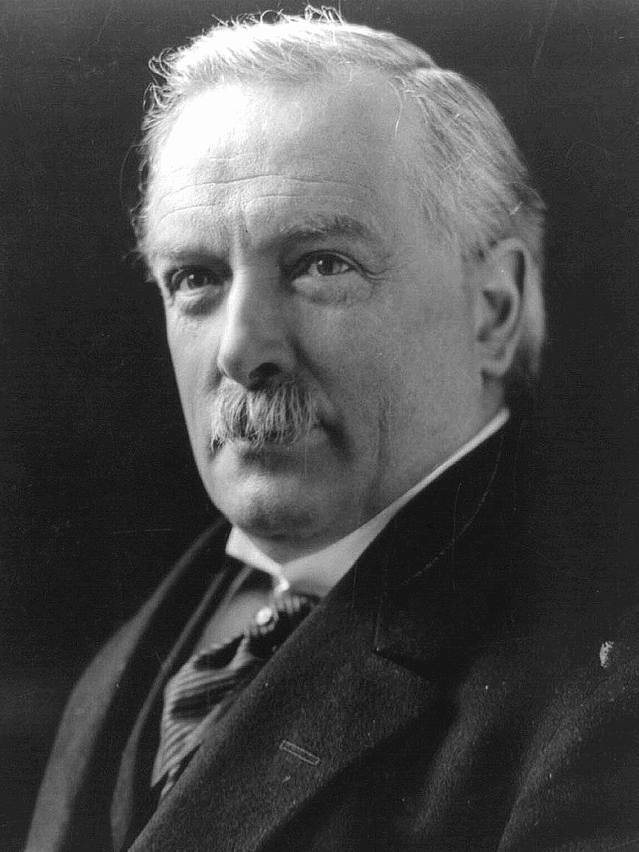
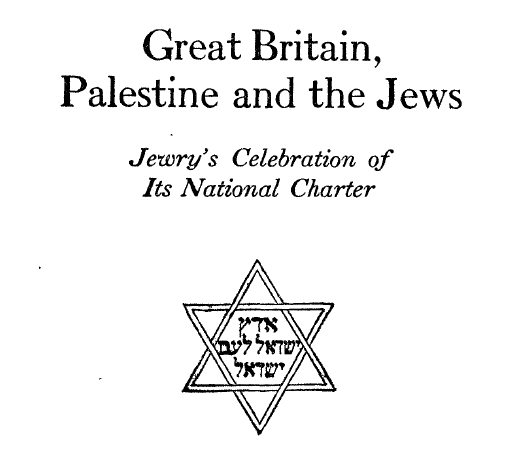
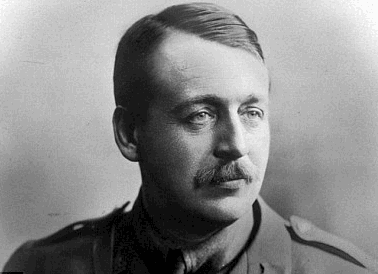
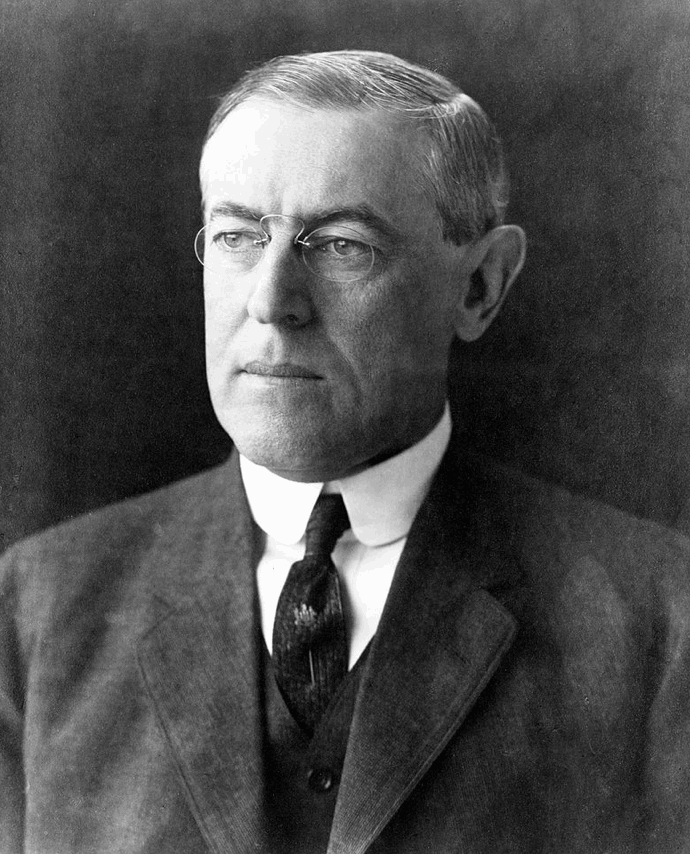
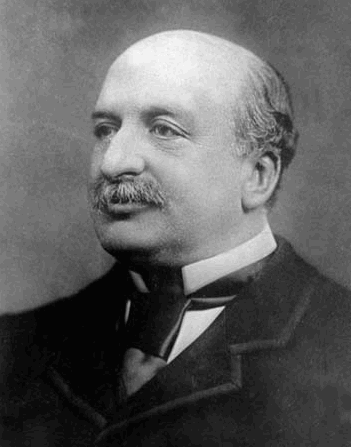
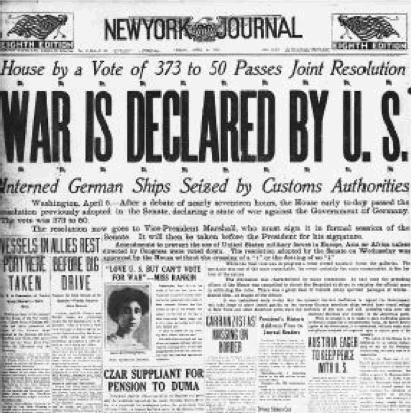
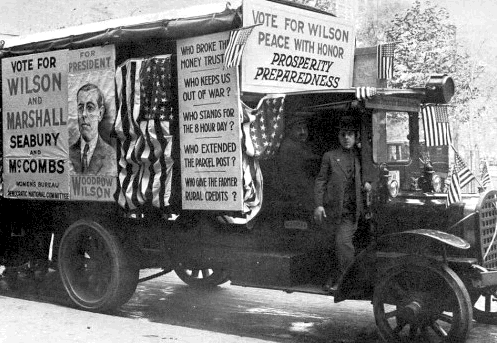
Pingback: The Myth of German Villainy: Author Ben Bradberry Interview — TRANSCRIPT – aladdinsmiraclelamp
Pingback: I grew up with Anti-German Propaganda….. “The Myth of Germany Villainy” – aladdinsmiraclelamp
Thanks aladdin for spreading the word.
Pingback: It’s Time to Put a Stop to German Bashing – aladdinsmiraclelamp
Pingback: Treason in America 1 | Economic & Multicultural Terrorism
Pingback: WW II German Troops reach Lemberg Ukraine. Communist Bloodbath on Ukainian Population – aladdinsmiraclelamp
Pingback: WORLD ULTIMATUM TO SATANYAHU – 1967 Border or One Democratic Palestine!!!! | The Poison Apple of the World
Pingback: WORLD ULTIMATUM TO SATANYAHU – 1967 Border or One Democratic Palestine!!!! - Sunflower Chong
Pingback: The Myth of German Villainy: Author Ben Bradberry Interview — TRANSCRIPT - katana17katana17
Pingback: Niki´s Opinion Forum